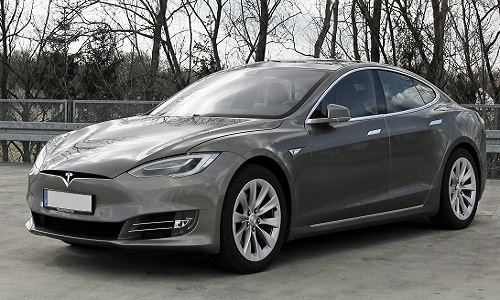By CRM Staff
Toronto, Ontario – July 9, 2018 — While the U.S. President’s economic team expected the international community to react in kind towards the administration’s protectionist economic policies, one OEM has become the first major corporate entity to adopt similar economic policies of their own accord – and stakeholders in Canada’s auto aftermarket should take note. Last week, Tesla has raised the prices on both their Model X and Model S vehicles by over US $20,000 in China.
The decision comes in the midst of China’s increasing trade tensions with the U.S. government. China currently possesses the world’s largest automotive market and, in 2017, had contributed to approximately 17 percent of Tesla’s total revenue.
“Raising the prices is going to hurt sales, but money losing Tesla has to raise prices because they can’t afford to fully absorb to the higher costs of tariff,” CFRA research analyst Efraim Levy said.
“I wouldn’t wonder if Tesla is going to hike the prices in general, because the money is getting shorter and shorter,” said Frank Schwope, an analyst with NORD/LB. “Cutting 9% of the jobs was a similar sign. I can’t imagine, that Tesla can be in the black before 2020.”
Just two months prior, Tesla had cut the price of the Model X in China by $14,000, in response to the automotive juggernaut revealing its plan to reduce tariffs on imported vehicles starting July 1.
While the impact this news will have on the Canadian automotive industry is uncertain, it won’t necessairily be bad. With this ‘rebound’ protectionism likely to be mimicked by other OEMs, the Trump administration may be forced to halt its plans to place further restrictions affecting the Detroit-Windsor corridor.
According to a report issued by TD Bank, the impact of the proposed tariff on Canadian-manufactured vehicles could cause Canada’s automotive industry to shed more than 100,000 jobs. With increased prices for Canadian consumers, the impact would not just be felt by auto manufacturers. According to most economic models, more expensive vehicles would lead to fewer Canadians choosing to drive, and fewer repairs overall.
With traditional OEMs unlikely to relish the possibility of having to raise their prices and sell fewer cars – not just in China, but in Canada as well – many observers expect them to be more vocal in their objections to the administration. Detroit, a traditionally Democratic state, voted for Trump in 2016. It is unlikely Trump, should he run in 2020, would be likely to win back his job without the backing of the state’s electors.





































